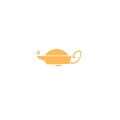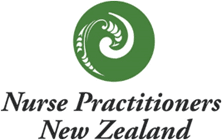Louise Leonard NP Mental Health & Addiction
Louise began her nursing career as a hospital trained general and obstetric nurse at Waikato hospital many years ago and worked in a wide range of acute areas in NZ, the UK and Australia, before making her way to oncology and palliative care, then chronic pain and eventually to mental health and addiction nursing.
For the past 20 years she has worked in the alcohol and other drug (AOD) field, first in Australia and since 2004, back in the Waikato. Here she held the position of Clinical Nurse Manager of the Community Alcohol and Drug Service (CADS) in Hamilton for five years and in order to pursue her goal of Nurse Practitioner, she took up the role of Clinical Nurse Specialist. She completed her Masters of Nursing (Prescribing) at the University of Auckland in 2010 and was endorsed as New Zealand’s first AOD NP in April 2012. Since 2013 she has worked as a Mental Health and Addiction NP for Waikato DHB.
Since her return to New Zealand Louise has been instrumental in addiction nursing workforce development in New Zealand. She is Chair of the recently established Addiction Nurses Branch of Te Ao Maramatanga, College of Mental Health Nurses.
Louise is Maori, of Ngapuhi descent, and is a strong advocate for improved access to health services for Maori, Pacific Island people and other marginalized and disenfranchised groups.
Louise lives on a small lifestyle block outside of Hamilton with her partner, Phil. Between them they have 4 adult children and 2 mokopuna so far and eagerly await more!
ABSTRACT
Title: Pain or Addiction – which is it?
In the US over the past decade or two there has been a shift in the prescribing of opioids, from a fear of opioids to more liberal prescribing, in part due to the introduction of new formulations such as OxyContin. This has resulted in an escalation in opioid misuse. We are seeing similar pattern emerge in NZ.
In NZ it is estimated that there are about 10,000 people who are opioid dependent, and only half of these are receiving Opioid Substitution Treatment (OST). Therefore approximately half are not in treatment and have a high level of unmet need. Additionally, those presenting for help with opioid addiction have not come via the traditional pathway of illicit opioids and injecting drug use. AOD services are increasingly seeing people who have got into difficulty with opioid analgesia and have either become opioid dependent on opioids ‘liberally’ prescribed for an acute pain problem, which has now resolved, or prescribed opioids for a chronic (non-cancer) pain problem, for which there is little evidence.
Primary Care , Emergency departments, Pain Services and AOD services are increasingly seeing patient present who have become opioid dependent via a pain pathway. The question then becomes is this primarily a pain problem or is this primarily addiction and how do we treat it?
In this presentation I will explore out the clinical dilemma this poses and provide case studies to illustrate how a suitable and appropriate outcome can be reached.
 Menu
Menu
